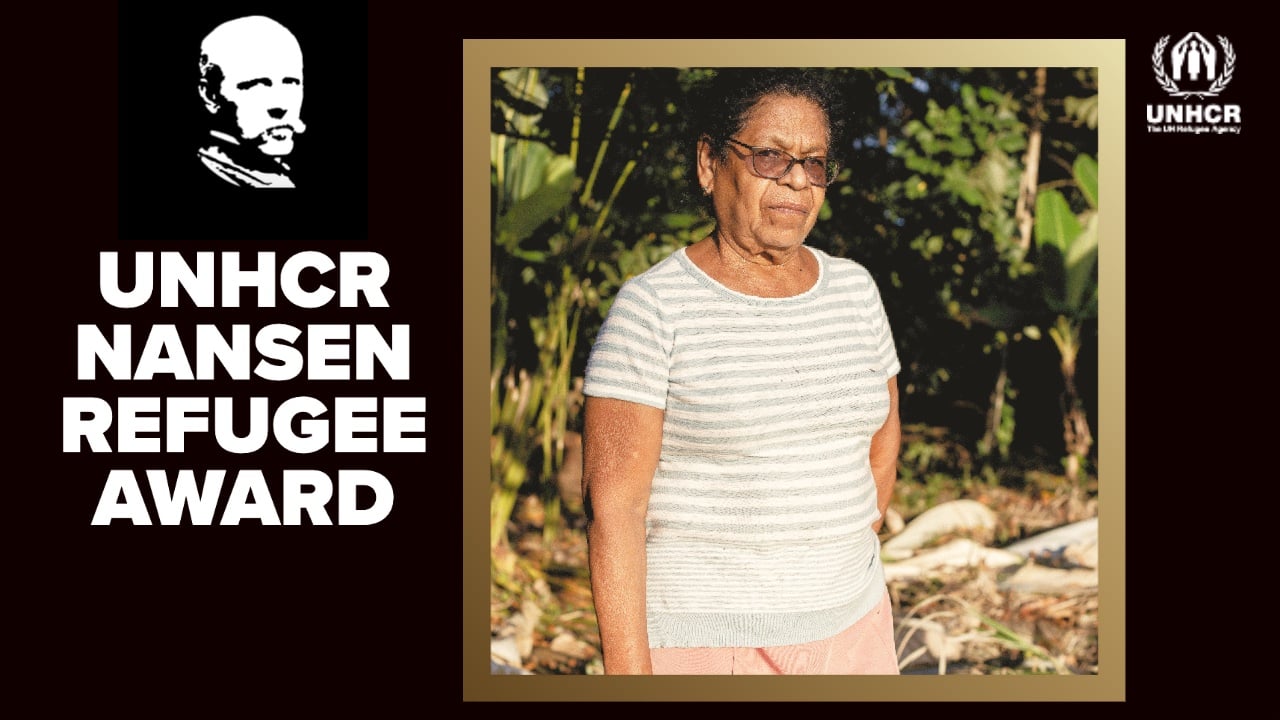Fear and shortages as Boko Haram displaced return to ruins
Fear and shortages as Boko Haram displaced return to ruins

GWOZA, Nigeria – After Nigerian forces liberated this once thriving city from Boko Haram militants, displaced resident Saeed returned home to gutted buildings and burned out cars. He is clear about what the city needs: “We need everything.”
The 38-year-old is among thousands of people, both returnees and those displaced from nearby villages, facing immense challenges in Gwoza, a city 40 kilometres from the border with Cameroon, which was liberated by Nigerian forces in March.
Although driven from the city, the heavily-armed insurgents are still marauding on the far side of mountains flanking Gwoza, and continue to attack nearby villages that supply it with vital produce
“The food is an issue, we are mainly farmers here but because of the insecurity still prevailing in the outskirts of Gwoza, and in the villages, we still cannot go and cultivate our fields,” says Saeed, describing the fears of those returning to the city, which lies some 150 kilometres from Maiduguri, the capital of north-east Nigeria’s Borno state.
“Because of the insecurity still prevailing in the outskirts of Gwoza, we still cannot go and cultivate our fields.”
“There is no industry in the region, and we need to be able to bring goods from other places, such as from Maiduguri or from Cameroon. But because the roads are not safe, we feel as if we are locked in. We need the roads to be open again,” he adds.
More than two million people have been forcibly displaced in Nigeria, including 1.87 million fleeing Boko Haram violence since 2014. Some 169,000 people have sought shelter in neighbouring Cameroon, Chad and Niger.
Before Boko Haram captured Gwoza in August last year, it had a population of at least 300,000, although many fled to Maiduguri. The Nigerian military has been distributing some food provided by the government, and WFP has also made some distributions in the city and surrounding areas. Nevertheless, the challenges are immense for the 70,000 people who are now in the city.
Some 70 per cent of the city was razed during the fighting and eight months of Boko Haram occupation. When they stormed the city, militants murdered the Emir, and subsequently abducted an unknown number of women and girls, forcing many into marriage.

While the government has begun rebuilding infrastructure, including the city hospital, and organizations like UNICEF are providing health assistance, some returnees and new arrivals from other areas are living wherever they can – a potential source of problems in the future when more people originating from Gwoza return to find their homes occupied by strangers.
UNHCR, the UN Refugee Agency, and the International Organization for Migration and other partners are working with the authorities to provide shelter. UNHCR staff are helping develop a new site where internally displaced people arriving in Gwoza can seek shelter. There are three existing sites for the displaced in the city, which are managed by the army.
The welfare of children is also a concern. Many suffer from dehydration and malaria, though UNICEF, MSF and the military are providing health assistance in a tent. UNICEF has erected two big tents to provide classrooms, which are overcrowded with more than 130 pupils per tent. There are not enough teachers.
In general people told UNHCR they felt safe in Gwoza. But many people are not ready to return home, and the UN Refugee Agency reiterates that this should be voluntary. People should have access to sufficient information about the situation at home so that they can make an informed decision about return.
Many of those returning recall harrowing experiences during Boko Haram’s occupation, particularly women. One woman said she had no news of her 12-year-old granddaughter since she was abducted by Boko Haram, although she believed she had been forcibly married to a militant.
“They beheaded her. The insurgents would not allow us to recover her body and to bury her."
“I don’t know where she is. Boko Haram knew the military were coming soon to try to retake the city so they wanted to take away the girls and young women with them," said the woman, who declined to be named.
Another recalled how her 17-year-old daughter was kidnapped by Boko Haram when she ventured out into the street one night in search of food. She endured several months as their captive, but escaped only to be recaptured. She was subsequently executed after she refused to marry one of the militants.
“They beheaded her,” the girl’s mother recalled. “After several days, we saw her body and head in the street. The insurgents would not allow us to recover her body and to bury her."
To read a briefing note on the situation faced by those returning to liberated areas of northern Nigeria, click here.








